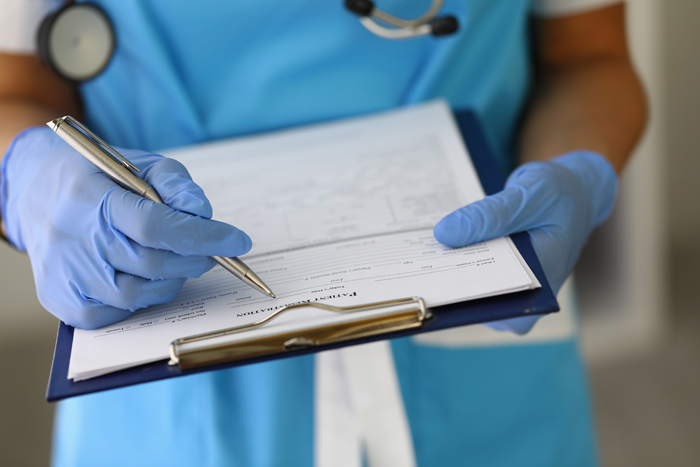Medical admission Treatment & Diagnostics in Chirag Enclave, Delhi
Medical admission
Introduction
Medical admission is a procedure in which a patient is admitted to the hospital to undergo any test, treatment, diagnosis, or surgical procedure. You might need medical admission as an emergency admission or elective admission. During medical admission, the doctor and nurses at the General medicine specialist at the hospital will check your vital signs and get a blood test, urine test, stool test, or imaging test (X-ray, MRI, CT scan) depending upon the severity of conditions.
About medical admission
Based on the severity, you will need to visit the hospital as an outpatient, day patient, or inpatient. As an outpatient, you need to go to the hospital for an appointment but cannot stay overnight. As a day patient, you visit the hospital for treatments like minor surgery, dialysis, or chemotherapy. For medical admission as an inpatient, you need to stay overnight at the hospital under the observation of an emergency care team or a general medicine specialist in Delhi for the test, treatment, or surgery.

Types of medical admission
There are two types of medical admission depending upon your medical condition:
- Emergency admission – An emergency medical admission is a condition that is not planned and results from any trauma, injury or acute illness that is not treatable on an outpatient basis. It needs the collective work of a team of the Emergency Department.
- Elective admission – It is the type of medical admission in which the doctor requests to reserve a bed for your treatment, diagnosis, or to perform minor surgery.
When to seek hospital admission?
Under the following conditions, you might need medical admission at a good hospital to get appropriate treatment.
- Shortness of breath
- Heavy bleeding
- Chest pain
- Loss of consciousness for a long time or trauma
- High fever, severe headache, and severe pain
- Problem with vision, speech, or movement of limbs
- Stroke or heart attack
- Sprain, ligament break, or fracture
- Accident
- Severe allergy
What should you ask before medical admission?
Before medical admission, you need to ask a few questions from the concerned authorities:
- What is the reason for my hospital admission?
- What was the result of my diagnosis?
- How long will I have to remain in the hospital?
- Will my health insurance cover the hospital bill?
- What treatment will I get?
- What are the risks associated with medical admission?
- What will happen if I don’t want to get admitted? Is there any alternative available for me?
Tests during medical admission
There are various tests performed during the medical admission, like:
- Blood tests and intravenous injections to administer drugs or to replace fluids
- Blood pressure, body temperature, and blood oxygen concentration
- X-ray – To get details of the fracture, lung infection, or fluid in the lungs
- CT scan and MRI – It gives 360 – degree image of the head, chest, and abdomen
- ECG – It measures the activity of the heart and checks damaged heart muscle
- Ultrasound – Usually during pregnancy
- Biopsy – It is a test to take a sample of an organ, usually to detect cancer
- Catheterization – To insert a catheter into a vein or artery.
Request an appointment at Apollo Spectra Hospitals, Chirag Enclave, Delhi
Call 1860 500 2244 to book an appointment
Level of care at the hospital
Depending upon your medical condition, you can be given a varying level of care at the hospital:
- Intensive care unit (ICU) – For sickest people or those who need a ventilator
- Surgical care unit – Patients who had surgery
- Cardiac care unit (CCU) – For heart patients
- Emergency department unit
- Pediatric intensive care unit (PICU) – For children
- Neonatal intensive care unit (NICU) – For new-borns
- Step down unit – Patients that need close nursing support
- Oncology unit – Cancer
- Surgery floor
- Medical floor
- Neurosurgical unit
What should you bring along with you to the hospital?
You must not bring anything valuable to the hospital like jewelry and plenty of cash if you are staying overnight. Bring the following documents along with you:
- Identity proof
- Name and contact of your physician
- List of all medical conditions that you like diabetes, hypertension
- List of your current medications
- List of previous surgeries
Discharge from the hospital
You might get discharged from the hospital overnight or after a couple of days. The team of doctors will study your vital signs before discharge. You need to sign the discharge papers and pay for the hospital bill.
Conclusion
If you are not suffering from severe trauma and disease, you can have the appropriate treatment at home or the clinic. You must have a first-aid kit at home as a means of quick treatment. Rather than visiting the hospital as an inpatient, you can go to the doctor’s clinic for some diagnosis. Medical admission is a detailed procedure that is costly and requires time. Even after the discharge from the hospital, you need follow-up, take medications, and follow all the necessary precautions.
Maintain hygienic conditions, proper disposal of waste, thorough hand wash to reduce the risk of spreading infections in the hospital.
You can contract urinary tract infection, meningitis, gastroenteritis, and pneumonia due to medical admission.
The most common reasons for emergency medical admission are accidents and heart failure.
Symptoms
Our Top Specialities
NOTICE BOARD
CONTACT US
CONTACT US
 Book Appointment
Book Appointment


.svg)
.svg)
.svg)
.svg)








